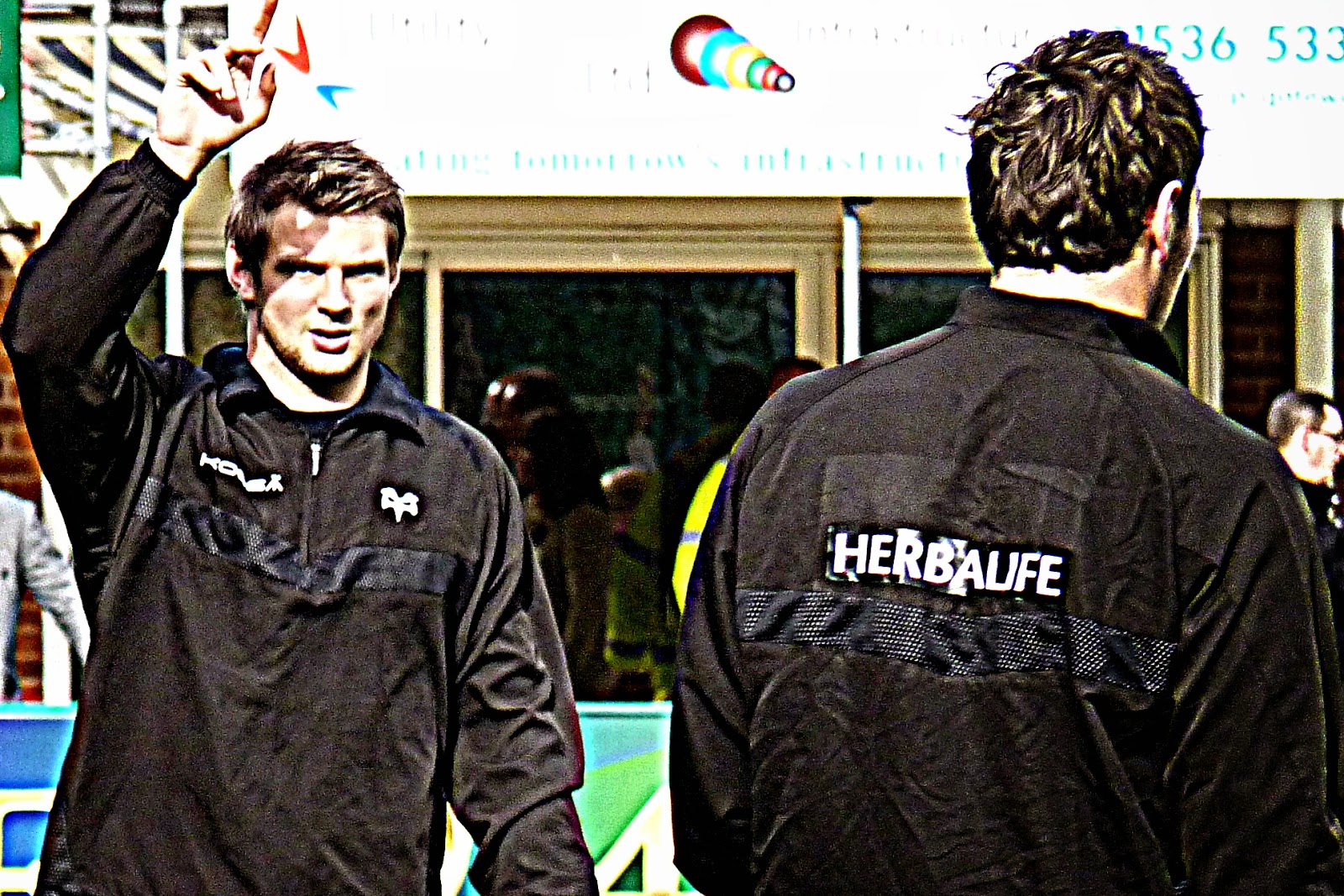Place kicking is the most visible of set plays in rugby, occurring with relatively frequency in an otherwise fluid moving sport. It therefore, provides an ideal opportunity to model a repeatable trial, with few important variables and come up with a ranking table for kicking ability.
The position from where kicks are taken are obviously the most important factors, but the player's preferred kicking foot and the side of the pitch from where the kick was taken can also impact on the likely success rate. The model is described in more detail here.
Over half of the points scored by each team in England's recent 21-16 win over Wales in the opening match of the 2015 Six Nations came from the boot. England's George Ford contributing 11 of their 21 points (and potentially may have scored 16 place kicked points), while Wales' Leigh Halfpenny adding 8 points (potentially 11) to the three from a Dan Biggar drop goal for the beaten hosts.
 |
| Hands up if you're good enough to kick for Wales. |
Ford's progression can be measured by comparing his kicking performance as a raw youngster for Leicester and England U20's to his more recent efforts in the Premiership with Bath.
91 typical penalty attempts from the 2011/12 season from the young George Ford yielded 58 successes. Had these kicks at goal been taken by the more accomplished version of the fly half from the 2014/15 Premiership season, an extra 14 kicks might have been landed, on average.
Similarly, 54 successes from 67 Premiership kicking attempts so far this season would likely have yielded just 42 successes if they had been taken by a player with the kicking ability of the younger Ford.
It shouldn't be a surprise that Ford has improved as a kicker from an 18 to a 21 year old. And we can use the respective models to simulate the range and likelihood of outcomes for the recent Wales England match if the kicks were taken firstly by the younger Ford and then the more experienced incumbent of the number 10 shirt.
In short, we can judge the impact of a team playing with both an accomplished kicker and also a less skilled one, albeit simply through youth and inexperience.
Using the likelihood that Ford and Halfpenny are successful or not with all of their their respective kicks, based on both the difficulty of the attempts on opening day and each player's historical success rates, it is possible to simulate the possible final scorelines by adding these probabilistic outcomes to the points scored from tries and drop goals.
Unsurprisingly, England win an overwhelming 97% of the matches that pit the current kicking talents of Ford against Halfpenny. The latter is currently the world's best kicker, while Ford is a very good international place kicker, but had more opportunities on the night. In addition England outscored their host in points scored from non place kicks.
However, if we use Ford's inferior kicking stats from his stint as an England Under 20 international to create his model, England now win just below 90% of simulations, drawing 2%. More significantly when the final kick from the actual game has been simulated after 77 minutes, Wales are either leading or within three points of England in 34% of the simulations when England's place kicking is inferior, compared to just 10% of the time when Ford is modeled at his current talent level.
This potentially changes the dynamic of the final three minutes. A third of the time Wales are either defending a lead or need just a converted penalty to rescue something from the game.
It is tempting to define a players career by the outcome of high profile, pressure kicks. But in truth, England gained their win in Cardiff by recognising Ford's development from a promising 17 year old to a twenty something with excellent international place kicking abilities.
The fall in England's win probability from a near 100% to just over 90% when they are forced to rely on a weaker kicker, highlights that in the modern game of rugby, the highest quality of place kicking appears to be a luxury you must afford.
No comments:
Post a Comment